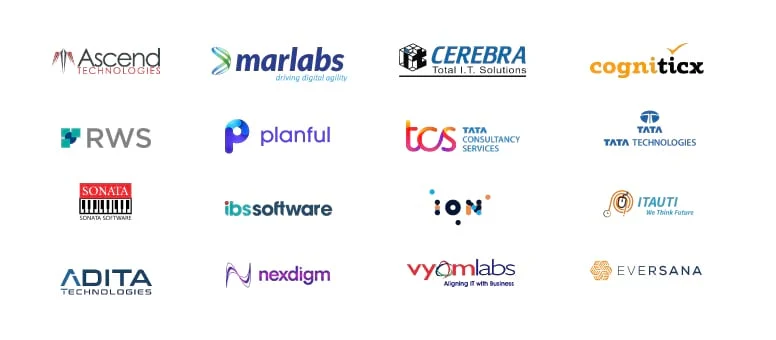30+ Hrs
Hands On Training
Lifetime Access
Updated Content
Customizable
Learning Paths
Industry Expert
Mentors
Projects
Advanced Interactive

Hands On Training
Updated Content
Learning Paths
Mentors
Advanced Interactive
Our Cyber Security Training in Hyderabad is a comprehensive program designed to equip individuals with the knowledge and skills required to protect digital systems, networks, and sensitive data from cyber threats. With the increasing frequency and complexity of cyber-attacks, there is a growing demand for skilled professionals in the field of cybersecurity.
To apply for the Cyber Security Training in Hyderabad, you need to either:
The course content of the Cyber Security Course in Hyderabad is designed with the help of industry experts and trainers at HKR. It will give you an advanced learning experience online, and you can explore the below modules of the Cyber Security course.
Scenario: Consider an XYZ business transmitting some confidential information to a third party, and a hacker inadvertently or deli.....berately leaks some of the sensitive data. Problem Statement: As a cybersecurity specialist, you have been designated to evaluate security risks and discover the possibilities that one or more of their counterparts have provided the data. Highlights: Verify the organization counterparts. Perform tactics for allocating information. Recognize the leakage of anonymous data and the group responsible for it. Prevention of Data Leakage. Read more
Industry: Web Security Problem statement: How can a website that is open to SQL Injection fix vulnerabilities? Description: You .....will work on the prevention of SQL Injection attacks in this project. The purpose is to detect websites that are open to SQL injection, find and exploit various vulnerabilities in SQL injection, list websites, and fix website problems. Topics covered: SQL injection. Évaluation of vulnerability. Detection of intrusions. Read more


It is a training on Cyber Security Concepts. It is designed for professionals interested in developing skills in CyberSecurity. Cyber Security training offered by HKR Trainings will equip you with all the skills that you need to obtain the best job opportunity in CyberSecurity Domain.
Having knowledge in the following areas is beneficial while taking up this course offered at HKR in Hyderabad.
To learn the basics of Cyber Security, you must enroll in the Cyber Security Certification Course at HKR Trainings. You can also register for this course by filling out the popup with the required details, or you can contact our customer support team for more details.
After attending all the training classes and submitting assignments and projects, you will get a verified Cybersecurity Online Course completion certificate from HKR. Further, our expert trainer will explain the steps to apply and pass the Certification with good skills.
Our Hyderabad trainers are highly qualified and certified with many years of industry experience with a technical background in Cyber Security.
Certification differentiates you from the non-certified peers, and you can demand the best salary in the leading companies in Hyderabad.
We, at HKR in Hyderabad, provide complete guidance to reach your dream job. But your job will be based on your performance in the interview panel and the recruiter requirements.
HKR Provides Fortinet Training, CommVault Training, Cyberoam Training, Palo Alto Training, Juniper Training etc along with Cyber Security Trainig
The Cyber Security training course in Hyderabad benefits the following list of professionals.
CyberSecurity is the process that is involved in protection of sensitive Information and Critical Systems from Digital attacks. These attacks are launched by the Cyber Criminals to gain unauthorized access to the data to steal, modify or manipulate the data and extort money from the Victims.
Cyber Security is easy to learn. However it needs a good understanding of computer systems, networks, etc. If you have no prior knowledge in these concepts, getting guidance from experts will be beneficial.
The demand for cybersecurity professionals is constantly increasing as organizations are recognizing the importance of protecting their data and systems from cyber threats. It provides job security, competitive salaries, and various career advancement opportunities.
The need for coding in cyber security can vary based on your specific role and area of expertise. However not all cybersecurity roles need extensive coding skills, having some programming knowledge can be beneficial.
If you miss any online session in the Cyber Security Training in Hyderabad, you will get class recordings. It will help you revise the chapters taught and ask doubts, if any, in the next class.
Our highly skilled and expert trainers will ensure that you know all the concepts clearly from day one in the Cyber Security Training. You will explore the wide range of skills in real-time in cyber security with the support of our trainers. Further, you will gain hands-on skills through practical learning, tasks, and real-time projects. So, by getting these skills, you can easily grab a good-paying career ahead.
Yes, we provide our learners and aspirants of the Cyber Security Course a free demo session before they enroll in our program. This demo session helps them know about the trainer's profile, training quality and methods, etc.
At HKR Trainings, our Cybersecurity course trainers are highly skilled, qualified, certified, and hold a good level of industry experience.
If you have additional queries after getting the best Cyber Security Course in Hyderabad, you can talk to the support team at HKR.
Most learners and aspirants who enrolled with us in the various IT courses were satisfied. Our expert trainers, with good industry expertise, along with real-time domain skills, help our students get quality training. We provide the best trainers who make learning interactive and interesting for learners. Also, our learners get hands-on skills with real-time projects to get practical skills. So, there is no chance of dissatisfaction with the Cyber Security Training you will get.
For Assistance Contact:
![]()
![]() +91 9711699759
+91 9711699759
Query